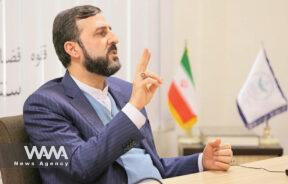Iran Elections and Fraud Allegations
WANA (July 08) – Allegations of electoral fraud in Iran have been a recurrent and contentious issue throughout the Islamic Republic’s political history. These claims have been raised repeatedly since the Islamic Revolution and have consistently elicited various reactions from officials and the public.
The peak of these allegations was during the 2009 presidential election. The recent Iranian election and the murmurs of fraud allegations during it provide an excellent reason to revisit this topic.
1. Initiators of Fraud Allegations
The 2009 Iranian election was the pinnacle of fraud allegations raised by reformist candidates Mir-Hossein Mousavi and Mehdi Karroubi. They claimed that the results announced by the Ministry of Interior indicated widespread electoral fraud.
Their evidence included reports from polling station observers, vote count discrepancies, suspicions of engineered results, and public testimonies. For example, some reports indicated that the number of votes in some districts exceeded the number of eligible voters.
These allegations led to the formation of the Green Movement and widespread public protests, which were among the greatest challenges for the Islamic Republic of Iran. However, President Ahmadinejad‘s opponents have not yet presented court-admissible evidence for the 2009 fraud allegations.
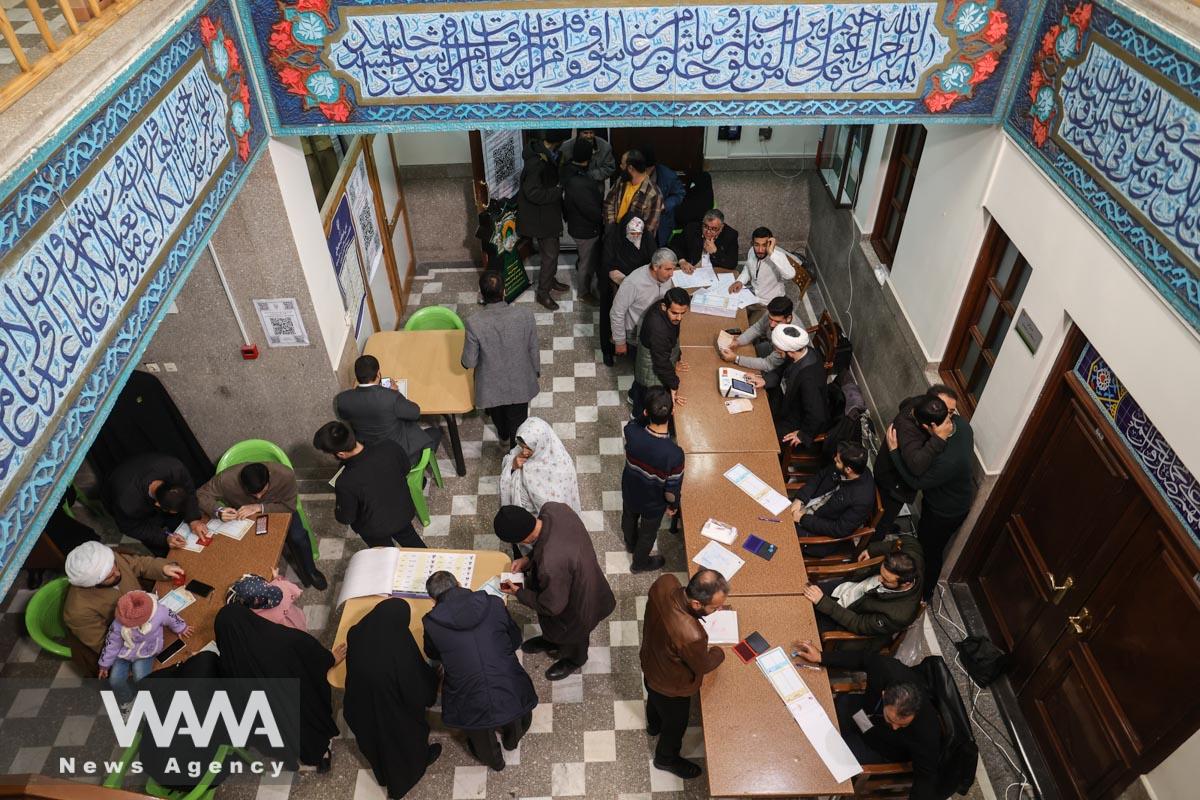
Iranians wait to vote at a polling station during parliamentary elections in Tehran, Iran, March 1, 2024. Majid Asgaripour/WANA (West Asia News Agency)
2. Right and Wrong Times to Refer to the Ballot Box
In the Islamic Republic of Iran, referring to the ballot box has always been presented as a primary tool for achieving democracy and public participation, but it has also always been contentious. Various political factions and figures have had different views on referring to the ballot box depending on the election results.
When the election results do not favor the reformist faction or government critics, allegations of fraud and election engineering are raised. For instance, many did not accept the results due to widespread fraud allegations in the 2009 election. Conversely, the results were generally accepted when reformists succeeded in elections, such as in the sixth parliament election.
Additionally, in 2013 and 2017, reformist factions widely supported participating in elections and referring to the ballot box because they believed that widespread public participation could bring about desirable changes in the government structure.
In contrast, in 2021, some of these factions boycotted the elections. They urged people not to vote, believing that the election results were predetermined and that voting would not change the situation.

New Government, New Foreign Policy Challenges
WANA (July 07) – With the establishment of a new government in Iran, the international difficulties facing this administration will gradually become more pronounced. In the regional context, southern Lebanon has the potential to ignite and turn into a new crisis hotspot. Meanwhile, the war in Gaza has not ended, and Iran’s stance […]
3. Validity of Fraud Allegations in the Past 40 Years
Fraud allegations in Iranian elections have always been raised but never officially confirmed by the relevant institutions. One reason for the lack of official confirmation is governmental bodies’ stringent control and oversight over the election process and supervisory institutions.
For example, in the 2009 election, the Guardian Council and the Ministry of Interior rejected all fraud allegations and deemed the results valid. Ahmad Jannati, the Secretary of the Guardian Council, stated: “There is no evidence of widespread fraud in the election, and all processes were conducted under strict supervision.”
The main reason for the lack of official confirmation of fraud allegations is the insufficient and unsubstantiated evidence provided by the claimants. Additionally, official institutions usually follow legal and supervisory processes to investigate fraud allegations, and their conclusions so far have favored the integrity of the elections.
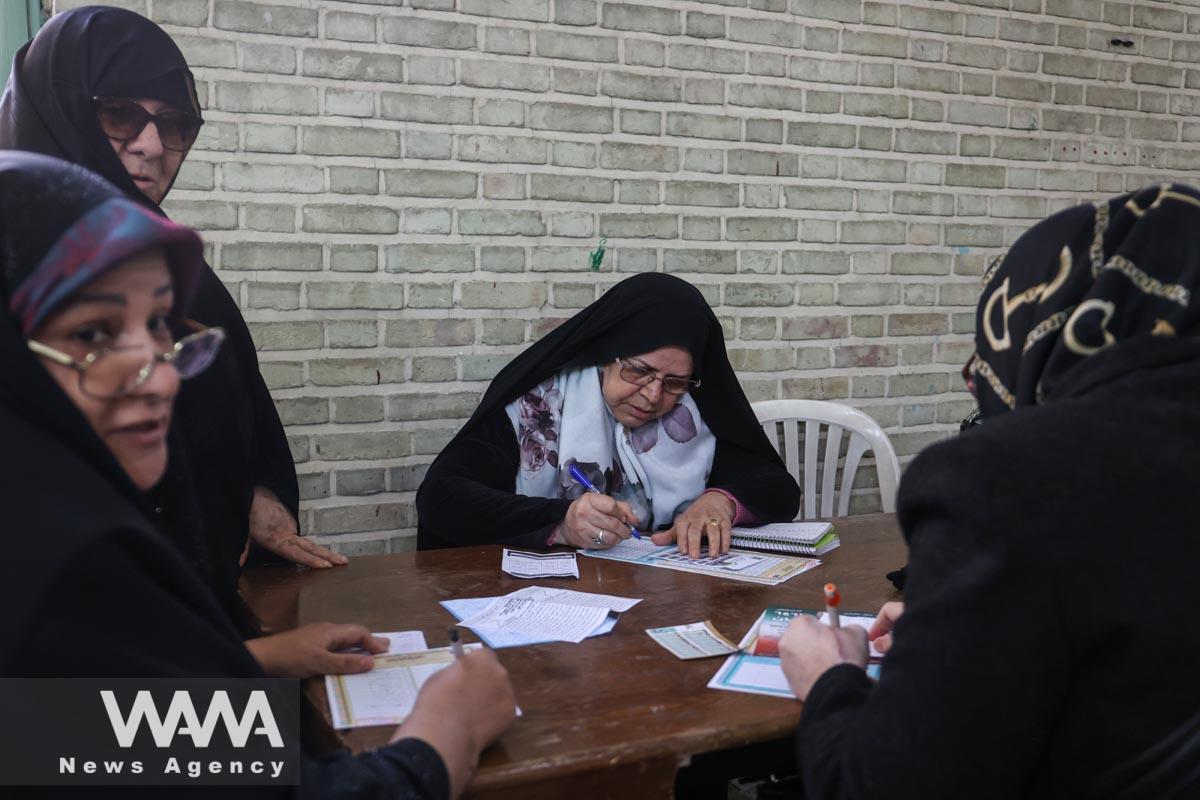
Iranians vote during the parliamentary election at a polling station in Tehran, Iran, March 1, 2024. Majid Asgaripour/WANA (West Asia News Agency)
4. Accusations Against the Leadership Regarding Election Fraud and Engineering
A recurring theme in fraud allegations is the accusation against the Supreme Leader of Iran for engineering elections and interfering with the results, given his crucial role in policymaking and overseeing governmental bodies. These accusations are usually raised by opposition and critical factions. For instance, in the 2009 election, some protesters claimed that the Supreme Leader had interfered in the election results to favor a specific candidate.
Holding an Immediate Election and the Victory of Election Boycotters
The people of Iran elected their ninth president on June 28, 2024. Masoud Pezeshkian won the majority vote after a month of intense competition with his powerful rivals. Pezeshkian’s supporters believed that the establishment did not favor electing the reformist candidate, thus questioning the election’s integrity until the last moments of voting.
In his first speech after winning, Masoud Pezeshkian sarcastically remarked, “We should thank the Leader because if it weren’t for him, my name wouldn’t have come out of these ballot boxes.” This statement, while indicating the Leader’s influence in ensuring the election’s integrity according to some observers, raises the question of whether the reformists intended to hint at something specific.
Many critics believe that elections in Iran are conducted under the influence of vetting supervision and direct intervention by governmental institutions. Some argue that even with Pezeshkian’s victory, elections in Iran remain rigged and ceremonial.
Gauthier Rybinski, the international editor at the “France 24” news network, analyzing Iran’s developments, stated: “Pezeshkian’s rise to power cannot be considered a coincidence; the power structure in Iran has made this decision. Since Pezeshkian is seen as a reformist, the power structure intends to use him for negotiations with the West over the country’s nuclear program. In other words, the Supreme Leader hopes for negotiations and sends a message to the West through this election.”
Rybinski emphasized that since the candidates must pass through various filters, including the opinion of the Leader and the Guardian Council, “If a reformist can ultimately become a candidate, it means they need a reformist.”
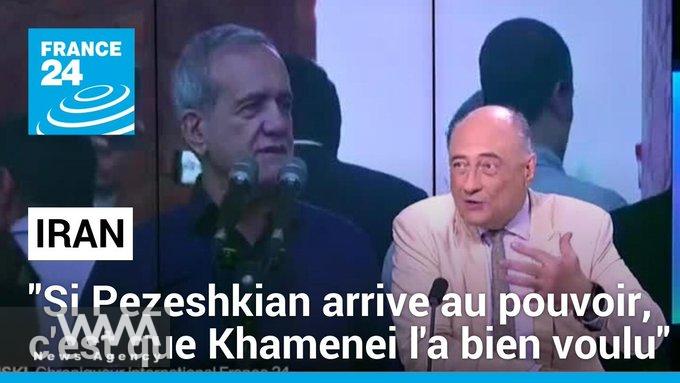
WANA- Gauthier Rybinski and Iran’s Election Opinion
5. Ballot Box in Iran: A Sign of Democracy or a Tool for Fraud?
The ballot box in the Islamic Republic of Iran is presented as one of the primary tools for achieving democracy. However, there are varying perspectives on it. Some believe that the ballot box represents the will of the people and the realization of democracy and that widespread public participation can bring positive changes in the country.
Conversely, others believe the ballot box is only valid if their supported faction or candidate wins; otherwise, they consider the elections fraudulent. This perspective highlights a deep rift in public trust in Iran’s electoral institutions.
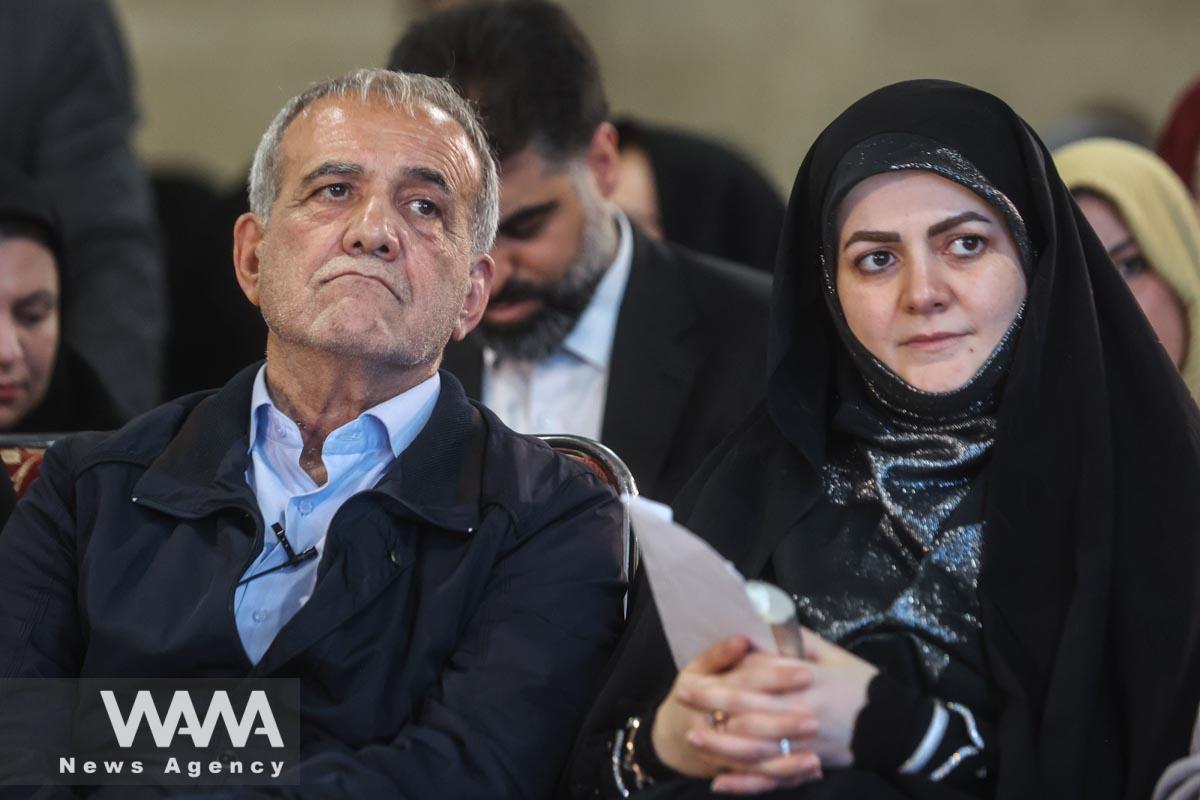
The unmarried president’s daughter got the “First Daughter” title
WANA (July 8) – Masoumeh Ebtekar, former Vice President of former president Hassan Rouhani and a serious backer of Masoud Pezeshkian in the recent presidential elections, suggested in a tweet that given the President-elect’s single status, his daughter, who was by his side throughout the election campaigns, should accept the title and responsibility of “First […]
6. Murmurs of Engineering in the Recent Election
There were also murmurs of fraud and election engineering in the recent Iranian election. However, these allegations have not been officially confirmed. Some of the signs that led to these rumours include:
– Reduced Participation: One of the main reasons for raising fraud allegations was the significant drop in election turnout. Some analysts believe this reduction was due to public dissatisfaction with the government’s performance and a lack of trust in the election process.
– Restrictions on Candidate Approval: The Guardian Council disqualified many prominent and well-known candidates. This was interpreted as benefiting the conservative faction’s favoured candidate, fueling rumours of election engineering.
– Lack of Independent Supervision: The lack of independent supervision and the extensive presence of governmental observers were other reasons that could fuel fraud allegations. Some independent and international observers noted the lack of transparency and inadequate oversight.
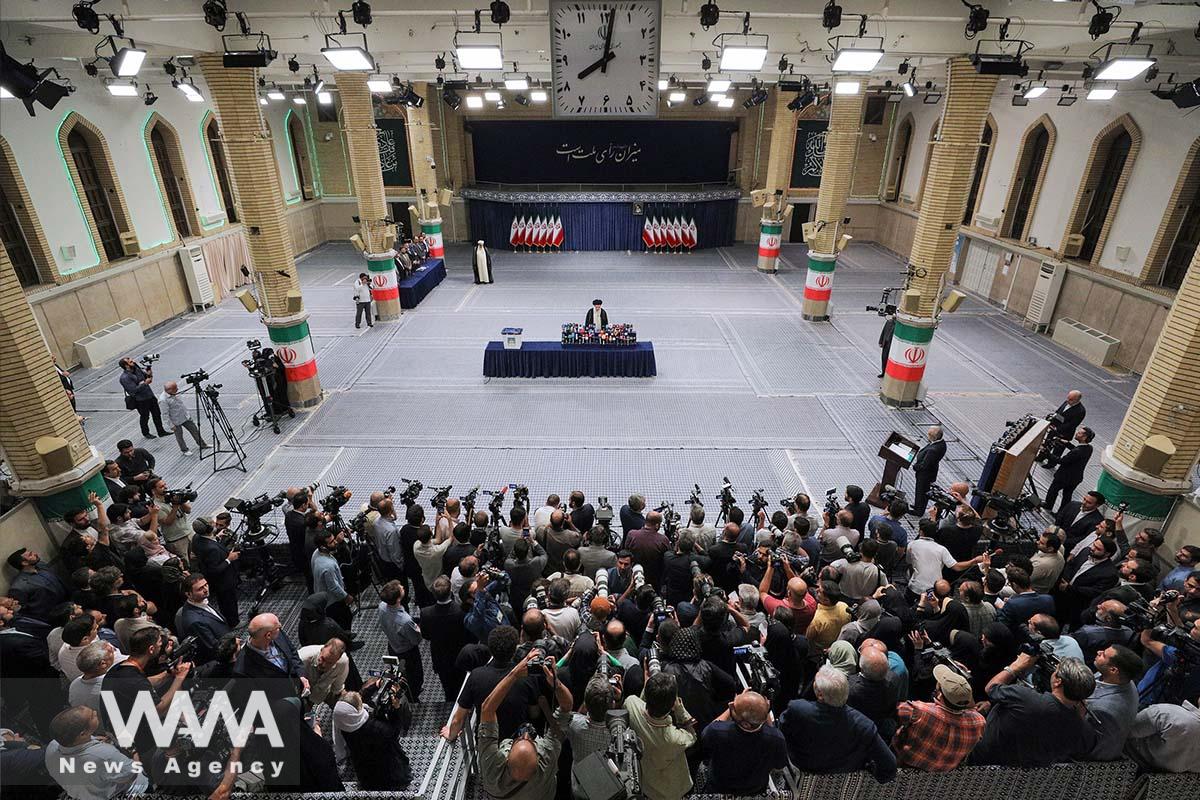
Ayatollah Khamenei, the Leader of the Islamic Revolution, cast his vote in Iran’s 14th Presidential elections on June 28, 2024. Leader office / WANA News Agency
The Role of Media in Shaping Fraud Allegations
The media plays a significant role in shaping fraud allegations and conveying these claims to the general public in Iran. Both domestic and international press have addressed this issue in various ways.
Domestic Media
Domestic media in Iran, depending on their political orientation, have addressed the issue of electoral fraud differently. Conservative media generally try to deny and refute fraud allegations and emphasize the transparency and legality of the election process.
For example, the Fars News Agency, close to the conservative faction, stated in a report: “All electoral processes in Iran are conducted under strict and transparent supervision, and fraud allegations are merely baseless efforts by some factions to undermine the election’s legitimacy.”
Conversely, reformist media and some independent domestic media have tried to substantiate fraud allegations with evidence and various reports. For instance, in one of its reports, the newspaper “Shargh” stated: “There is substantial evidence of irregularities and fraud in the 2009 election that requires thorough and transparent investigation by independent bodies.”
International Media
International media have also extensively covered the issue of electoral fraud in Iran. BBC, CNN, and Al Jazeera are among the media outlets that have published various reports on this subject. In a report on the 2009 election fraud allegations, the BBC quoted political experts saying: “Widespread fraud in the Iranian election not only damaged the Islamic Republic’s credibility but also severely reduced public trust in the election process.”
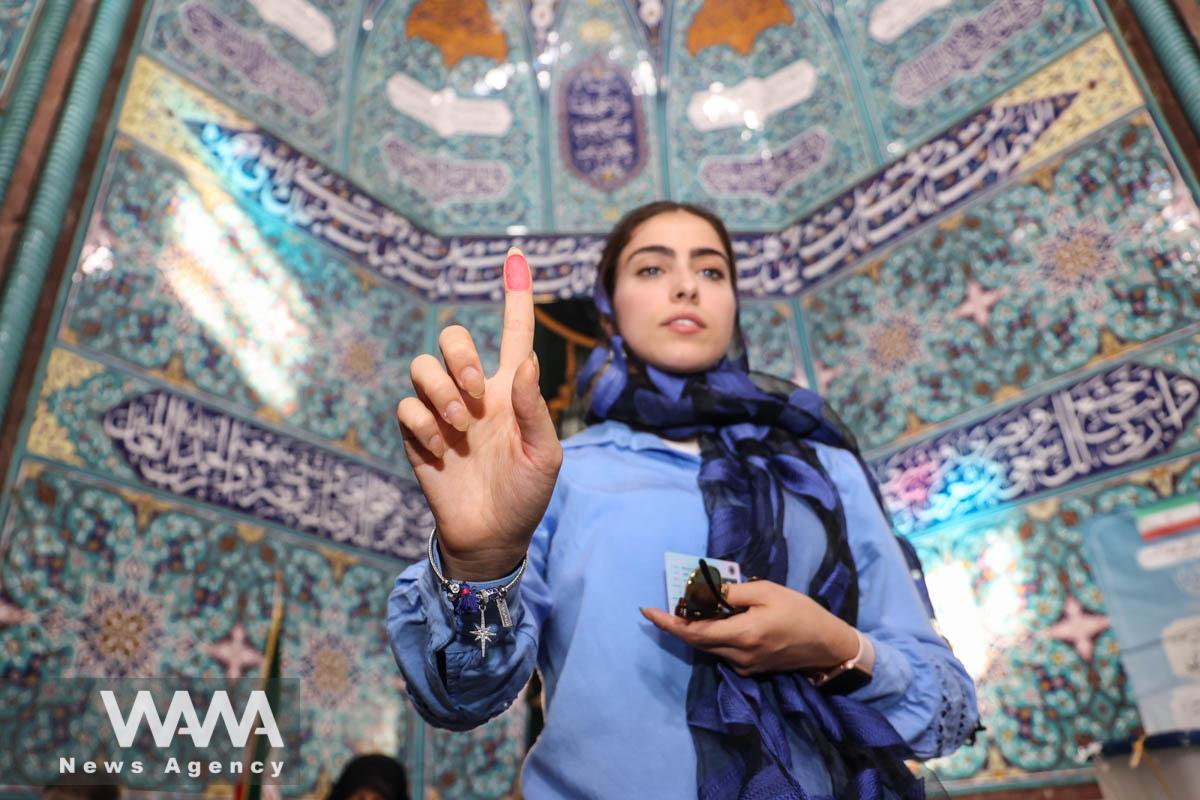
An Iranian woman gestures at a polling station in a snap presidential election to choose a successor to Ebrahim Raisi following his death in a helicopter crash, in Tehran, Iran June 28, 2024.Majid Asgaripour/WANA (West Asia News Agency)
Psychological and Social Analysis of Electoral Fraud
Fraud allegations in elections have political, legal aspects as well as psychological, and social aspects.
Public Trust in Electoral Institutions and Government
Public trust in electoral institutions and government is critical to accepting election results. Dr Ali Karami, a social psychologist, says: “Public trust is formed when people feel that the election process is transparent and fair. When this trust is undermined, fraud allegations and widespread protests will follow.”
Fraud allegations can have extensive social impacts. Dr Mohammad Taghavi, a well-known sociologist, states: “Fraud allegations in elections can lead to protests and social unrest. These protests can deepen social divides and cause political instability.”
Suggestions for Improving Public Trust in Elections in Iran
To improve public trust in elections in Iran, the following measures are suggested:
– Greater Transparency: Providing accurate and transparent reports on the election process and its results can help improve public trust.
– Independent Supervision: The presence of independent and international observers in elections can help reduce rumours and fraud allegations.
– Legal Reforms: Reforming electoral laws to ensure greater justice and transparency in the election process is essential.
– Public Education: Increasing public awareness about the importance of transparent and fair elections can help reduce fraud allegations. Educational and informational programs can play a significant role in this regard.
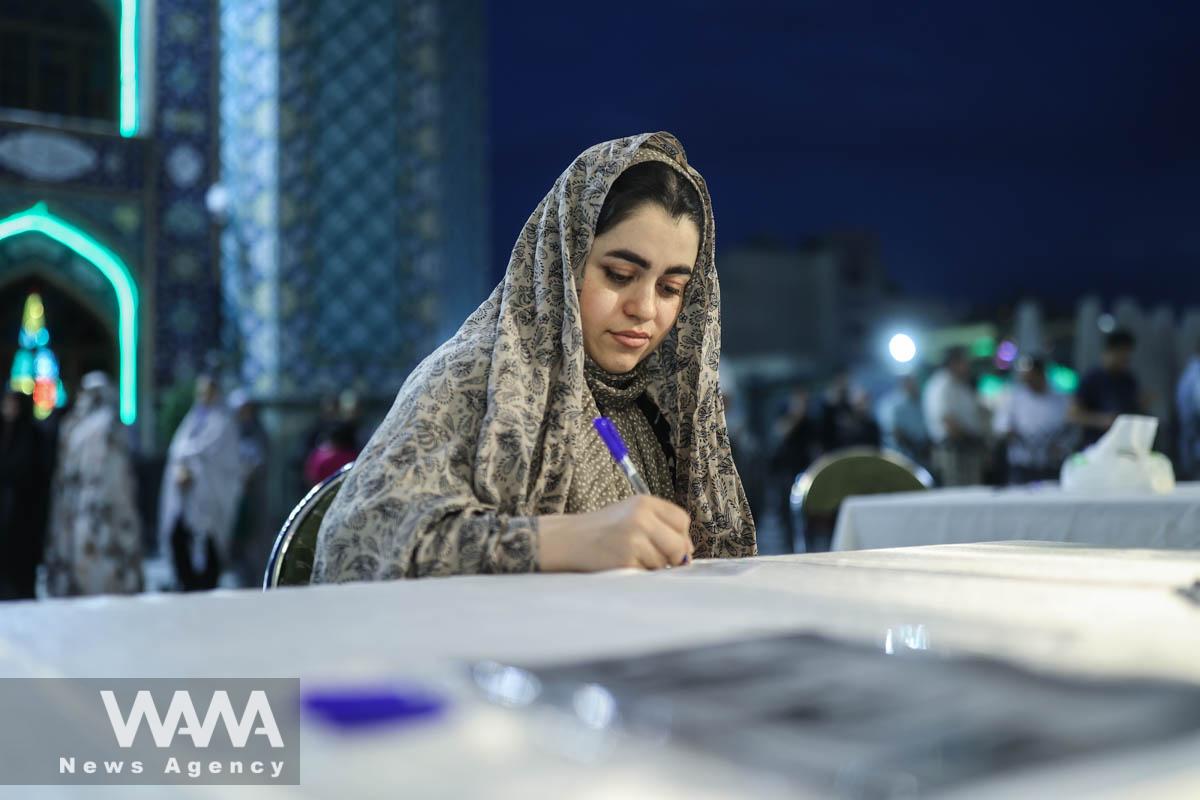
An Iranian woman votes at a polling station in a snap presidential election to choose a successor to Ebrahim Raisi following his death in a helicopter crash, in Tehran, Iran June 28, 2024.Majid Asgaripour/WANA (West Asia News Agency)
Elections in Iran have always been accompanied by fraud allegations, which presents one of the main challenges for the Islamic Republic of Iran. Various analyses indicate that greater transparency, independent supervision, and legal reforms are necessary to improve public trust and reduce fraud allegations.
The proposed measures in this article can help create more transparent and fair elections in Iran and improve public trust. Additionally, to maintain democracy and increase public trust, all political factions must respect the election results and resolve their disputes through legal channels. This can strengthen the system and increase public participation in democratic processes.
By WANA writer: R. Hejazi








